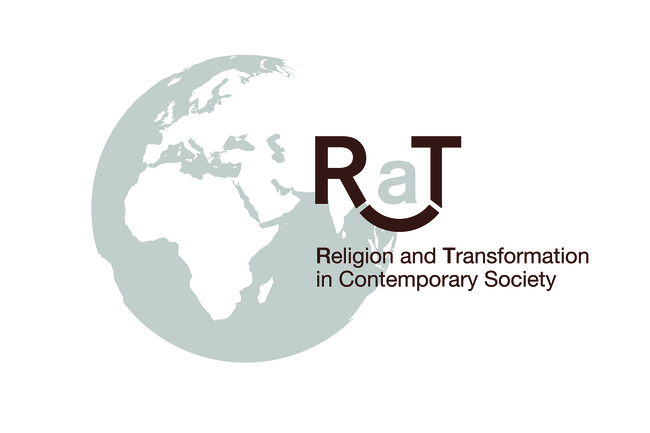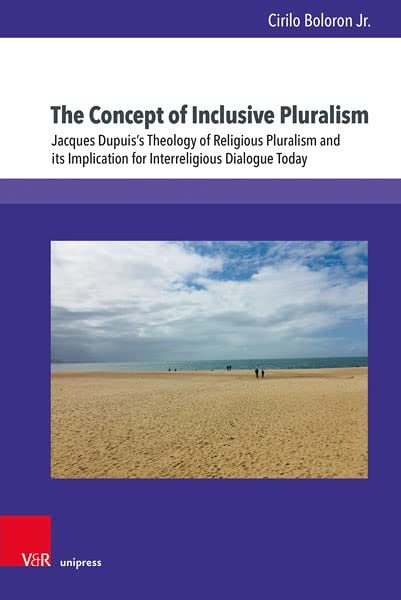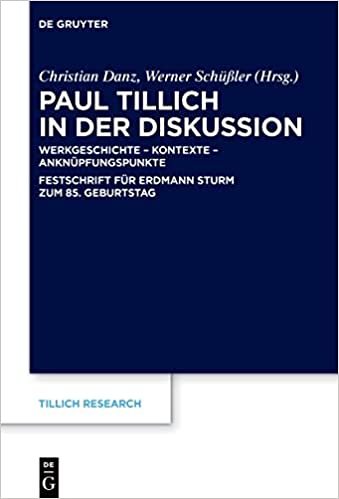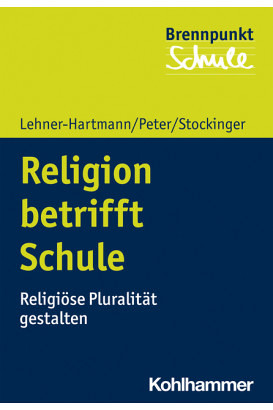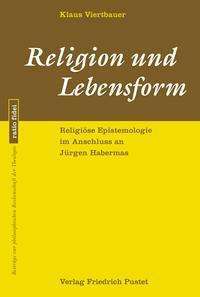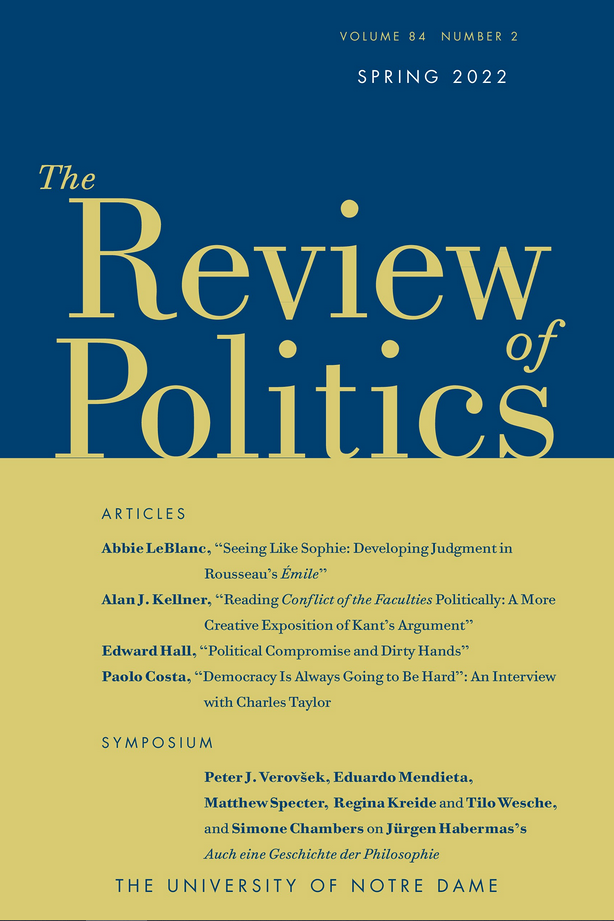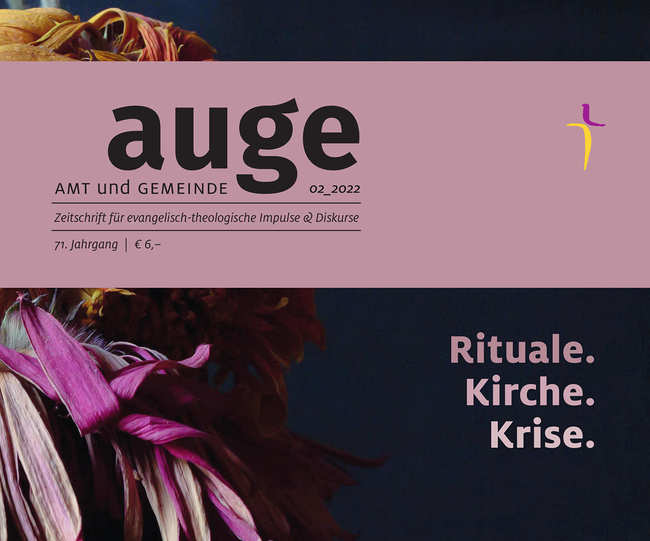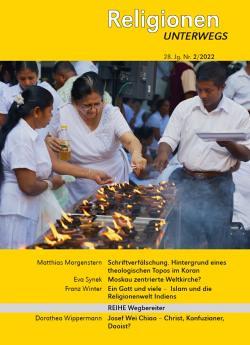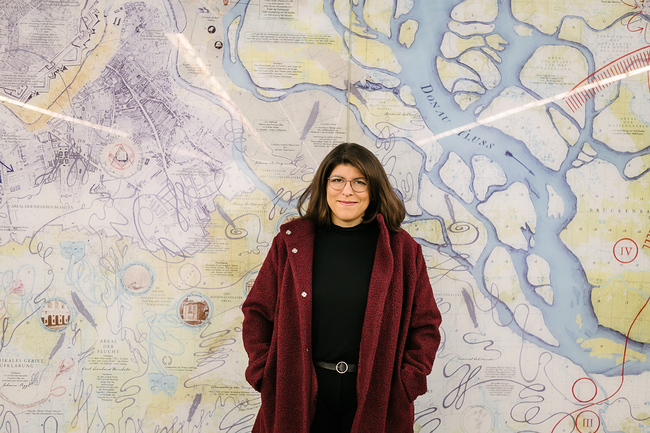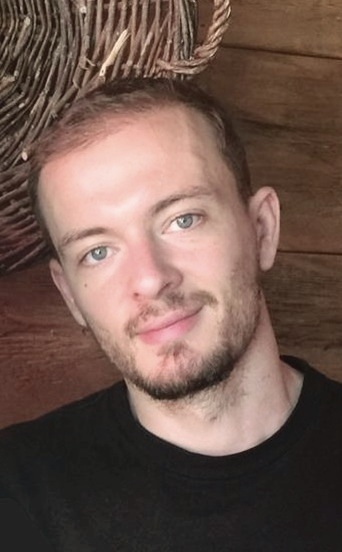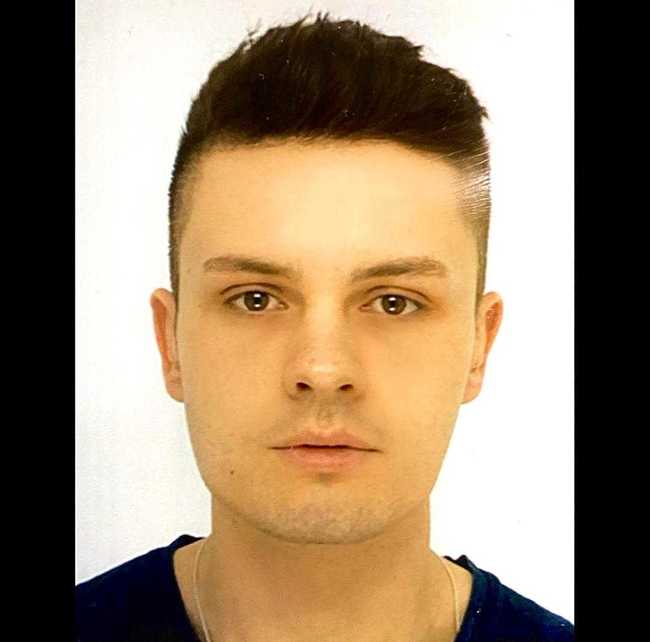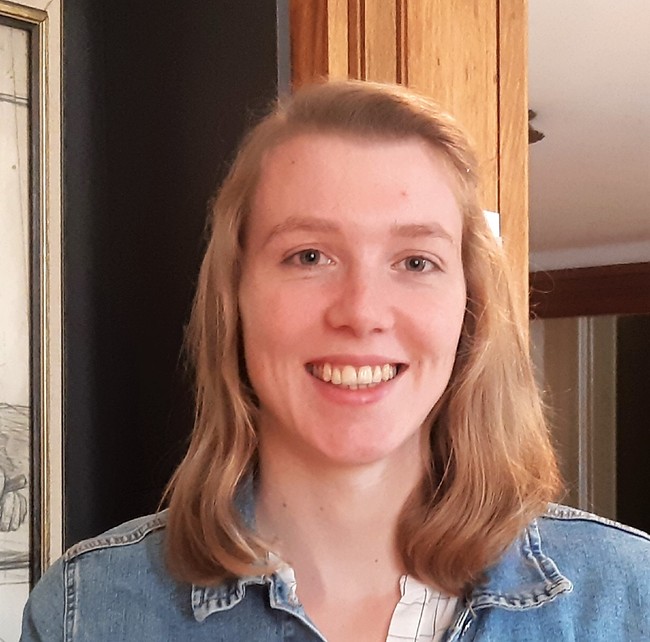|
|
Dear members and friends of RaT,
Summer has finally arrived in the city. As with everything, for some people this is a joy, for others a burden. Hopefully everyone can make the most of it and enjoy a little break – be it with a scoop of ice cream, a holiday trip or a dip in the Danube. In the course of the past term, things seemed to get back pretty much to normal, which is why a number of events could take place. These exchanges are indeed nourishing for the soul and we are happy to share some of them in this newsletter.
Before the summer break, we would thus like to report in this newsletter on new publications, current research projects and upcoming events of RaT members. We also have the pleasure to introduce you to new team members of the research centre as well as to the next two scholarship holders of the newly founded VDTR!
Furthermore, we are pleased to present in this newsletter two recent dissertations by RaT team members, as well as two current research projects by RaT members.
Last but not least, we would like to invite you to read our most recent blog entries where we discuss societal issues and present topics that currently influence the work of our research unit: Read a book review by Dominik Drexel on Jessica El Menshawi's and Helena de Anta's appeal for empathy and against prejudice in their discourse on the hijab, the Islamic veil, as well as an insight by Christian Danz into the cultural horizon of the Protestant theologian Paul Tillich and his work in Dresden.
We wish you a pleasant reading and relaxing summer holidays!
Lisa Achathaler, Kurt Appel, Hannah Bleckenwegner, Jakob Deibl, Daniel Kuran, Marian Schäffner.
Please consider forwarding our newsletter to those interested in the topics we work on!
|
|
PUBLICATIONS: Monographs & Anthologies
|
|
Boloron Jr., Cirilo: The Concept of Inclusive Pluralism. Jacques Dupuis’s Theology of Religious Pluralism and its Implication for Interreligious Dialogue Today. V&R unipress 2022.
When people of different cultures and religious traditions are being constantly drawn closer together, interreligious dialogue becomes not only a strategy to understand the “Others,” but also an attitude to deepen one’s faith. Christian faith acknowledges other religious traditions as genuine “ways” and “channels” of salvation for their adherents and that religions have a place in God’s universal plan of salvation for humankind. The plausibility of this assertion can be exemplified by the concept of “inclusive pluralism,” a theological model developed by the Belgian-born Jesuit theologian Jacques Dupuis. This book expounds that concept and reflects on its implication for the Catholic Church’s unwavering commitment to interreligious dialogue.
Link to the publication.
|
|
|
Danz, Christian / Schüßler, Werner (eds.): Paul Tillich in der Diskussion. Werkgeschichte – Kontexte – Anknüpfungspunkte. Festschrift für Erdmann Sturm zum 85. Geburtstag. Berlin/Boston: De Gruyter 2022.
Tillich research has changed fundamentally in the last 20 years. Whereas in the second half of the 20th century the focus of research was primarily on the late work as it is presented in Systematic Theology, since the turn of the millennium studies on the early work and the history of the work have increased. This is mainly due to the new sources made available to research through the editing work of Erdmann Sturm. The contributions in this volume explore the question of how the picture of the development of Tillich's theology and philosophy of religion in terms of the history of his work presents itself when these new sources are taken into account, and which aspects of his thought offer points of contact for contemporary theological debates. The volume thus comprises three parts: work-historical perspectives, problem-historical contexts and systematic points of contact.
Link to the publication.
|
|
|
Lehner-Hartmann, Andrea / Peter, Karin / Stockinger, Helena: Religion betrifft Schule: Religiöse Pluralität gestalten. Stuttgart: Kohlhammer 2022.
Schools cannot avoid dealing with religion, because worldview and religious beliefs are always present there. The religious plurality of society implies an essential educational demand, which schools must address. This volume contributes in a scientifically well-founded and easily understandable way to a constructive approach to the ambivalent phenomenon of religion in schools. It serves as a handbook that provides orientation and opens up perspectives for action.
Link to the publication.
|
|
|
Viertbauer, Klaus: Religion und Lebensform. Religiöse Epistemologie im Anschluss an Jürgen Habermas. Regensburg: Verlag Friedrich Pustet 2022.
The volume takes up two characteristics that are contrary to each other for European societies of late modernity: On the one hand, as soon as a person elevates himself to the object of reflection, he sees himself referred to an alterity (traditionally interpreted in religious terms as "God"). On the other hand, the status of religious claims to validity in the public sphere (for example, in parliaments, courts or schools) is increasingly restricted and becomes more and more a private matter. The author attempts to resolve this ambivalence by drawing on the work of Jürgen Habermas. Specifically, Habermas' distinctions between ethics and morality as well as faith and knowledge are to be linked to a religious epistemology with the aim of clarifying the significance and scope of religious convictions.
Link to the publication.
|
|
|
PUBLICATIONS: Selected Articles
|
|
Costa, Paolo: “Democracy Is Always Going to Be Hard”: An Interview with Charles Taylor, in: The Review of Politics 84 (2/2022), pp. 238-251.
This interview with the Canadian philosopher Charles Taylor was designed and realized to celebrate his ninetieth birthday in November 2021. The interview touches on all the main themes of Taylor's oeuvre, from his view of philosophy to the inherent link between human intelligence and strong evaluations, from the Immanent Frame to postsecularity, from today's democratic crisis to the 1980s debate between liberals and communitarians, from Xi Jinping's China to the global health emergency, from spirituality to Philosophical Romanticism. It is both a hindsight analysis by a first-class thinker and a glance into the future by an incurable optimist.
Link to the publication (full access).
Paolo Costa was a research fellow at RaT from May to July 2017 during which he gave two talks, respectively, on the new secularisation debate and the concept of “religious unmusicality”.
|
|
|
Limacher, Katharina / Novak, Christoph: 'Wir sind die Zukunft wer wart ihr?' Religiöse und politische Gedenkpraktiken im Nachhall des Anschlages vom 2. November 2020 in Wien. In: auge - Amt und Gemeinde (2/2022), pp. 90-100.
"auge" ("Amt und Gemeinde") sees itself as a theological journal that aims to inform pastors, teachers and all interested parties about the latest state of theological research and practice in the Protestant churches in Austria and in other Christian churches.
Link to the publication.
|
|
|
Synek, Eva: Auf dem Weg zur moskauzentrierten Weltkirche?, in: Religionen Unterwegs (2/2022), pp. 10-16.
A few weeks before the start of hostilities in Ukraine, the Patriarchate of Moscow announced the establishment of its own church structure in Africa. This violated the territorial integrity of the Patriarchate of Alexandria, which is responsible for the Orthodox Christians of the whole of Africa. There is a connection with the recognition of the Orthodox Church in Ukraine by the Ecumenical Patriarchate. However, the underlying church-political agenda is likely to be much broader. There are cross connections with the political-military engagement of the Russian Federation in Africa.
Link to the publication.
|
|
|
RESEARCH
DISSERTATIONS:
Lisa Achathaler: “From Trust in God to an Ethics of Hope:
Biblical Narratives, Grenzsituationen, and the Productive Role of Welte’s Mitvollzug”
The unexpected and uncertainties confront us with fears. This is particularly evident in the aftermath of Grenzsituationen, such as overwhelming/traumatic experiences. In this thesis, the reader will experience changes through multiple shifts in perspective. The structure invites the reader to engage performatively with the respective changes by offering her the opportunity to focus on the biblical motif of the divine name and to explore it more closely. In this way, the divine name, which symbolises hope and the future, forms the (albeit elusive, non-representable) centre of this thesis. It is necessary to approach this centre through adjacent thematic fields, given the issue of non-representability. This is undertaken through examinations of biblical narratives and through the philosopher of religion and theologian Bernhard Welte’s concept of Mitvollzug.
This work’s focus is on the divine name when surrounded by that which we fear (trust in God). According to my hypothesis, this contributes to facilitating a change of perspective, even in spite of fears, which enables the reader to find a new way to deal with these fears. Both approaches, through which the divine name is opened up a little more fully, also show that we can grow language-giving effects in the face of overwhelming experiences, which likewise opens up both the possibility for hope and the future itself.
Daniel Kuran: "Text und Erscheinung. Wie sich die Gottesfrage im Auffassen von Hegel und Derrida artikulieren könnte."
["Text and Appearance. Two forms of articulating the question of God following Hegel and Derrida."]
In this dissertation I deal with the possibility of articulating the question of God in a context in which theological language can no longer be presupposed. To explore this possibility, I utilize the approaches of G.W.F. Hegel and J. Derrida. Following recent research (e.g. Malabou, Comay, Schülein), I argue that, despite important differences, there are fundamental parallels between Hegel’s speculative thought and Derrida’s deconstructive thought. Their approaches are presented through the motifs of text (Derrida) and appearance (Erscheinung, Hegel). Fundamental features of Hegel’s understanding of the ‘logical’, his critique of the form of judgment, metaphysics, and transcendental philosophy are analyzed on the basis of the "Three Attitudes of Thought to Objectivity" (1830 Encyclopedia) and then concretized on the basis of the Phenomenology of Spirit (and Hegel’s “God that appears,” in PoS, 671). Hegel’s own position is distinguished from J. Hyppolite’s later interpretation of the Hegelian Logos, which is presupposed and critiqued by Derrida in his interpretation of Hegel. This analysis reveals similarities between Hegel’s third attitude of thought to objectivity and Derrida’s critique of logocentrism, as well as Derrida’s understanding of (arche-)writing and text in Of Grammatology. The approaches of both Hegel and Derrida lead each author to a transformation of transcendental philosophical approaches of their respective times. In both approaches the possibility of articulating the question of God is inseparable from a process in which the transcendental reveals itself to be contingent. In Hegels’ Phenomenology the appearing God is linked to the insight that the impossibility of recognition itself is the condition of possibility of the recognition of the other. In Derrida’s thought, this takes the form of a reinterpretation of the transcendental as a condition of impossibility. Based on an interpretation of Derrida’s How to Avoid Speaking, I argue that Derrida develops an affirmative understanding of (the condition of) impossibility that enables an articulation of the question of God in such a way that it is never grounded in itself and, going beyond Hegel, emphasizes the responsibility for the Other.
PROJECTS:
FWF Project by Ugo Dessì & Lukas Pokorny (June 2022 – May 2025):
"Glocal Buddhas: Exploring the Interplay of East Asian Buddhism and Globalization in Austria and Italy."
One of the challenges facing the study of religion and globalisation is to integrate the areas of enquiry suggested by previous research. The project aims to contribute to this task by focusing on the global repositioning of religion vis-à-vis other religions, global social systems, and global ideas. These three levels of analysis are integrated through a working definition of religion revolving around the concept of authority. Within this framework, the project will explore the factors underlying the global repositioning of religion, starting with those identified by our pilot study (resonance, global consciousness, search for power). To shed light on the interplay between global repositioning and transnationalism, we will target East Asian Buddhism in Austria and Italy (two countries with a strong Roman Catholic presence and similar percentages of Buddhists), with attention to traditions meaningfully present in both countries – Zen, Soka Gakkai International, and Chán Buddhism.
The research questions revolve around the global repositioning of Zen, Soka Gakkai International, and Chán Buddhism vis-à-vis other religions (e.g. Christianity), global social systems (e.g. science), and specific global ideas (e.g. ecology, gender equality). Against this backdrop, we will explore issues such as whether the greening of Buddhism implies the understanding of the environmental crisis as a global problem, the resonance of sustainability with Buddhist ideas, and the promotion of Buddhism as the solution to pressing global issues; whether the adaptation of the human rights discourse is used by practitioners to deconstruct gender roles; and how religious discourses can interact with the scientific/political domain in shaping Buddhist attitudes toward the Covid-19 pandemic and related matters.
COST-Programme by Regina Polak: "Connecting Theory and Practical Issues of Migration and Religious Diversity" (COREnet)
With January, the international COREnet-Programme “Connecting Theory and Practical Issues of Migration and Religious Diversity” (as part of Horizon 2020) started. It was accepted in in 2021 and is led by Prof. Milda Ališauskienė (Vytautas Magnus University, Kaunas, Lithuania) and Professor Annette Rose Leis-Peters (VID Specialized University, Norway). Prof. Regina Polak (Catholic-theological Faculty,, University of Vienna and member of RaT) was one of the participating applicants and is one of Managing Committee academic members representing Austria.
COREnet is an interdisciplinary network that aims at knowledge production, knowledge exchange and capacity building across Europe in the intersection of migration and religious diversity with a particular emphasis on bottom-up research. The background of the network is the pressing social situation that is characterised by the fact that migrants and Syrian war refugees coming to Europe, have become one of the major political issues and social challenges during the past years. Research, capacity building and exchange are important tools to analyse what lies behind these challenges and possible solutions. The network aims thus to contribute to overcoming divisions within and across European countries with the help of innovative approach that would add to existing social scientific knowledge on migration and religious diversity the study of religions and theological insights explaining the narratives of migrants and refugees. Drawing in researchers from all stages of their careers, and across different European countries, training a new generation of interdisciplinary action researchers capable of connecting study of religions and theology and the social sciences, and working that into action through processes of co-production. This network brings the bridging of knowledge with stakeholders – governmental, non-governmental and media organizations working in the field of diversity management on the local and national levels. Besides international conferences and workshops and publications on interdisciplinary research COREnet will organise a PHD-summer-school on “Narratives on Migration through the lenses of religious and non-religious beliefs”, which will take place in summer 2023 and will be organised by Regina Polak.
|
|
PAUL TILLICH IN DRESDEN. INTELLEKTUELLEN-DISKURSE IN DER WEIMARER REPUBLIK.
Congress of the German Paul Tillich Society
6 – 9 July 2022
Venue: Tillich Building of the Dresden University of Technology,
directed by Christian Danz
From the winter term of 1925/26 to the end of the winter term of 1928/29, Paul Tillich taught at the Cultural Studies Department of the Technical University of Dresden as Professor of Religious Studies. In Dresden, not only fundamental works such as "Die religiöse Lage der Gegenwart" (1926), "Das Dämonische. Ein Beitrag zur Sinndeutung der Geschichte" (1926) and the two Kairos volumes (1926 and 1929) were written, also his Dogmatics, which he had already begun in Marburg, was further elaborated here.
The Paul Tillich Congress in Dresden is dedicated to the theologian's dense intellectual networks against the background of the struggles for interpretive sovereignty over the Weimar Republic.
The programme can be found here.
WORKSHOP: MEDIEN – ERINNERUNG – AFFEKTE
Dimensionen einer Theologie der Kultur
15 – 16 September 2022
Venue: Faculty of Protestant Theology,
directed by Christian Danz, supported by RaT
The programme can be found here.
PAST EVENTS
Lecture Series with Cornelia Offergeld: "Memory of the City"
23 June 2022
The first event of the Lecture Series "Religion - Aesthetics - Public Space" took place on 23 June 2022. The lecturer was the curator and art scholar Cornelia Offergeld, who has been the curatorial director of the department "Art in Public Space Vienna" (KÖR) since 2021.
The background to the event was the question of remaining in processes of transformation to which public space is exposed today: What memory shapes the city and public space? Where is this itself in a process of erosion and how is it repeatedly restaged? What is the significance of art and artistic intervention in this process? And last but not least: What role do religions, with their sacred buildings and monuments, play in shaping public space to this day?
Reading Workshop on Fichte's Transcendental Logic with Alexander Schnell
10 June 2022
In cooperation with Prof. Dr. Alexander Schnell and with the support of Michael Boch, RaT organised a reading-based workshop on transcendental logic in Johann Gottlieb Fichte's (1762-1814 ) late work. The event was opened by a lecture by Prof. Dr. Alexander Schnell. In his lecture, he put Fichte's last creative period (1810-1814) in relation to his early work (1794-1799) and his middle work (1801-1807).
Find the whole report by Michael Boch here.
Grenzüberschreitungen. Fachtagung zu ausgewählten Feldern religiöser Bildung.
30 May 2022
On the occasion of the 60th birthday of Andrea Lehner-Hartmann - an invited speaker was, amongst others, Elisabeth Holzleithner (Faculty of Law).
VDTR Open Research Days – in cooperation with RaT
23 – 24 May 2022
On the 23th and 24th of May 2022, the first Open Research Days of the Vienna Doctoral School of Theology and Research on Religion (VDTR) in cooperation with the Research Centre Religion and Transformation in Contemporary Society (RaT) took place. Doctoral students and professors came together for enriching discussions and insights into current research projects on religion and theology from multiple perspectives.
Please find more impressions here.
"AUF DER SCHWELLE. VON RELIGION UND POESIE."
Poetics lectures by Christian Lehnert
5 & 26 April, 10 & 24 May 2022
The poet and theologian Christian Lehnert sought out thresholds in four lectures. At the borders of language, he explored the kinship of poetic and religious search movements into the unsaid. The silencing of God on the cross and the opposing idea of creation as a linguistic event, form the points of reference from which Christianity appears as a linguistic force that can never remain in what is said.
Listen again here.
|
|
THIRD MISSION ACTIVITIES
RaT members contribute to public discourse by writing in newspapers, giving statements in television and podcasts, and by publishing on our blog. These are two of our most recent blog entries:
RAT BLOG
"In sometimes challenging and tense dialogues, the interviewees find the courage to open up a space in which the personally binding truth of the hijab can be enquired rather than being tied down."
Read a book review by Dominik Drexel on Jessica El Menshawi's and Helena de Anta's appeal for empathy and against prejudice in their discourse on the hijab, the Islamic veil, where they interview 23 women from both Europe and the Middle East.
"Religion, he was convinced, was the substance of culture and culture the form of religion. For his search for the religious substance of modern culture, Tillich found excellent interlocutors in Dresden."
In this text, Christian Danz provides an insight into the cultural horizon of the Protestant theologian Paul Tillich during his time in Dresden.
|
|
WELCOME TO RAT, ASTRID MATTES!
Astrid Mattes will start her tenure-track professorship at RaT in September.
She studied political science and religious studies at the Universities of Vienna and Limerick. Previously, Astrid Mattes worked at the Austrian Academy of Sciences, where she led a research project on on- and offline identifications of urban religious youth. In her work, Astrid focuses on questions of cohabitation in (religiously) diverse societies, on digital religion and youth, on Islam in Europe and the intersection of politics and religion. As a tenure track professor for social scientific research on religion at the research centre RaT, Astrid aims to further explore, develop and conceptualize interdisciplinary perspectives on empirical research on religion.
We wish Astrid a great start in her new position!
|
|
|
WELCOME TO RAT, MARIAN SCHÄFFNER!
Marian Schäffner has started to work as an organisational assistant at RaT this May. He just finished his master´s programme in philosophy. His thesis was about the concept of life in Hegel's Science of Logic. So when you dial the RaT office number next time, chances are high that our dialectically educated rookie will be on the other side of the line.
We wish Marian a great start in his new position!
|
|
|
VDTR SCHOLARSHIP HOLDERS
(Vienna Doctoral School of Theology and Research on Religion)
We would like to take the opportunity to present in this newsletter the next two scholarship holders of the newly founded VDTR. In our previous newsletter, we introduced Martin Eleven and Alisha Saikia.
|
|
CONGRATULATIONS, CHRIS GAMROT!
Dissertation supervised by Gerhard Langer
Chris Gamrot is a PhD student at the University of Vienna focusing on Jewish Studies. His dissertation deals with the two major thematic blocks of conversion and martyrdom in the context of Jewish history of ideas, using the famous narrative of the Ger Tsedek Walentyn Potocki (Abraham ben Abraham), which is set in 18th century Poland-Lithuania, as a case study.
Before that he studied Political Science (MA) and Jewish Studies (MA) in Regensburg & Vienna with a focus on the compatibility of religion and politics with special attention to the countries of the Middle East, on the other hand the EU Mediterranean policy in the case of the State of Israel, taking into account the ongoing Middle East conflict. Other focal points are the EU's Economic and Monetary Union and the Central Eastern and Eastern European region.
|
|
|
CONGRATULATIONS, SABINE WOLSINK!
Dissertation supervised by Christian Danz
Sabine Wolsink has just started as a university assistant (prae-doc) in Protestant systematic theology at VDTR. Originally from the Netherlands, she studied historical, literary, and cultural studies with minors in theology in Nijmegen, Amsterdam, Leiden and Halle (Saale, Germany). Recently, she worked as a research fellow at the Franckesche Stiftungen in Halle. Her main research interests are nineteenth-century Dutch and German theology and its relation to contemporary questions on transcendence, subjectivity, religion, and art in liberal theology and radical and postmodern theologies.
|
|
|
|
|
|
|
|

